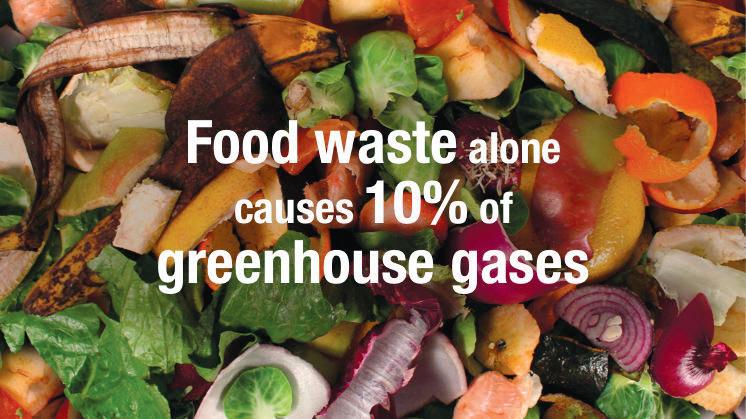
2 minute read
Food Waste + Climate Change
Did you know that food waste generates about 10% of total greenhouse gas emissions (GHG), over 3 times more than the aviation industry?
Did you also know that reducing food waste is one of the leading solutions to climate change?
Advertisement

In the battle against climate change, one often overlooked culprit is food waste. The global food system not only contributes to significant greenhouse gas emissions, but also wastes valuable resources and exacerbates environmental degradation. When we waste food, we are wasting ALL the energy, water, and resources that went into producing that food and getting it into our kitchens. However, by understanding the relationship between food waste and climate change and taking individual and collective actions, we can make a positive impact on both fronts.
The Link Between Food Waste and Climate Change
Food waste has a substantial carbon footprint. A whopping 58% of all the food produced in Canada annually and about 90% of the food we discard in Canada ends up as landfill, where it decomposes, emitting methane which contributes to global warming, or in compost. The production, processing, transportation, and disposal of wasted food requires vast amounts of energy and resources, further contributing to carbon emissions. As we gain a better understanding of the environmental impact of growing, processing and transporting food, more people are paying attention to reducing food waste in their kitchen at home.
What Can We Do About It?
REDUCE FOOD WASTE AT THE SOURCE: Individuals, households, and businesses can make a significant difference by better planning meals, buying only what is needed, and properly storing and preserving food. Households are the greatest contributors to food waste: 43% of food waste in the USA comes from households and 35% of all food goes unsold or uneaten. By making small changes of how you plan, store and eat your food, you can waste less food, save money and help fight climate change.
USE GREEN BINS AND COMPOSTERS: Simcoe County Green Bin materials are processed under controlled conditions and converted into other valuable products, such as soil amendment and compost, which helps reduce GHG emissions. You can also set up a composter in your backyard and use the compost in your garden.
IMPROVE YOUR DIET: our diet has too much meat, fish, processed foods, fats, sugars and dairy products; and it is short on essential ingredients such as fruits and vegetables. This imbalance, together with an unsustainable production model, poses a threat to our health and to that of the planet.
RAISE AWARENESS: Educating communities can foster behavioural change and encourage responsible consumption habits.
IMPROVE FOOD DISTRIBUTION: Enhancing logistics and infrastructure can minimize losses during transportation and storage, ensuring that surplus food reaches those in need. Best is to buy products from local farmers.
SUPPORT FOOD RECOVERY INITIATIVES: Encourage the establishment of local food banks, donation programs, and community gardens to redirect surplus food to those experiencing food insecurity.
IMPLEMENT POLICIES AND REGULATIONS: Governments must play a crucial role by introducing regulations that promote food waste reduction and support sustainable practices throughout the food supply chain.
In summary, food waste poses a significant threat to our climate and environment. By adopting a holistic approach that involves individuals, businesses, communities, and governments, we can reduce food waste, mitigate climate change, and create a more sustainable future. Together, we can make a profound impact by properly valuing food and ensuring that every plate counts in the fight against climate change.
Engage with Wasaga Beach Climate Action Team: wasagabeachclimateaction.com info@wasagabeachclimateaction.com
Submitted by Gerard Dusastre










